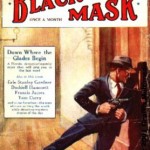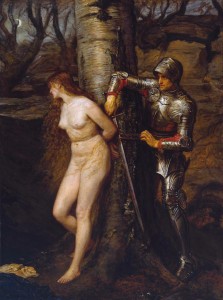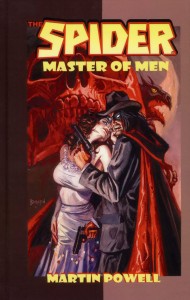It’s a strange world when this post has to be written, but that’s where we are. The venues in which a person seeks and gains entertainment should be that: entertainment. A great number of avenues for entertainment are currently being run by people with other aims, people with agendas other than to entertain. People who think message fiction is more important than fiction that gets read.
This isn’t to say that all fictitious entertainment should be without any sort of message, and anything with a message is bad. Quite the contrary, because there are often stories with a greater point woven into them. There are moral lessons, different characters have flaws that get explored. But there is also a far greater gulf between this and what I’m derisively calling message fiction. The latter is more akin to being preached to.
For a great many years it’s been fashionable to insult summer blockbuster movies. They’re mindless, they’re just explosion fests, etc etc. But they make a ton of money year in and year out. Otherwise, Hollywood studios wouldn’t make them. While many aspects of quite a few of these blockbusters are absurd, I can still enjoy them; San Andreas had more plot holes and issues with science and reality than some episodes of Star Trek, but it was damned entertaining.
Nobody is pretending there’s a deep philosophical reasoning behind it. But it’s got many tropes and settings that are enjoyable as hell: The main character is a strong man with strong values, he is portrayed in a positive light even despite his flaws, and he has a family he cares about above all else. This sort of thing appeals to many people. It plays well, and there’s nothing wrong with that.
It has action. It has crazy, did-that-happen moments. Most of it is implausible. But it’s entertaining through out, and at no point does anyone feel like the Rock is preaching to them. Those Fast and Furious movies have made many people very rich, for another example. They’re not the same sort of movie as, say, Casablanca (my personal favorite movie), but there’s nothing wrong with them. It’s all subjective taste. I’d still rather watch it than the apparent upcoming Chastain project that is going to center around an anti-gun activist dealing with gun rights activists. I’m sure that movie won’t be preachy at all.
Arlington Road was a psychological thriller that had a hell of a twist ending. There’s not the same level of action, but there is a whole lot of tension and from beginning to end the main characters are presented in a way that makes them interesting. The plot has some undertones about false flag operations and patsies. There’s definitely a message there, but even Tim Robbins manages to not be preachy.
One of the biggest complaints about Terry Goodkind’s Sword of Truth series is the Randian element and the preachiness of the main character. Admittedly, this is something I skip over when I read them: the guy likes his monologues. He’s building this philosophy through his books. I love the series, but the heavy-handedness of the author is probably the greatest flaw in the books.
Lately, I’ve been reading a lot of Larry Correia and Jim Butcher. Their books make me very happy — they’re entertaining from cover to cover. In the Dresden Files, there is a very serious undercurrent of morality from many of the main characters. Harry has a deep-seated conscience that guides him. There’s a lot of religion overall and a whole lot of Catholicism mentioned (though I can’t tell if Mr. Butcher is Catholic) — but despite all of this, there’s no preaching.
Larry Correia likes guns a lot, even more than I do, and yet, despite his love of them and his politics, he never quite preaches at the reader. His characters have defined viewpoints — but they make sense for the characters, too. People who need heavy artillery to deal with monsters are probably going to be fairly pro-gun. Government agents are going to be more pro-government. Contractors are definitely going to feel the government doesn’t do things as well as they do. These are all logical points of view for the characters. (Seriously, nobody will talk more trash about the federal government than former contractors with the exception of maybe former federal employees.)
At the end of the day, we like to root for the underdog. As a people, we just need that. It can be seen across all forms of entertainment. Not only do we want to root for the underdog, but we want the poor bastard to succeed. We want the hero, the person we’re buying into, the person we’re rooting for to get his prize at the end. We want the bad guy do get his, too — but it’s a bit of a different flavor.
Here’s an example: In the late 1990s, professional wrestling had two different, yet similar storylines in the two primary wrestling companies: WCW had Sting, a slighted former golden boy who had broken off to go his own way. He was fighting mostly alone against a larger group — the nWo, who counted among their number Eric Bischoff, the on-screen boss of the franchise. In the WWF (now WWE) there was Stone Cold, fighting his boss, Vince McMahon, and everyone McMahon could throw at him. Two distinct underdogs, both fighting the powers that be. The deck was stacked. The payoff for WCW was at the end of 1997 when Sting and Hollywood Hogan fought for the title — and Sting wins. Of course he did — they built the match for sixteen months or so. If he hadn’t won fans would have had a metaphorical case of blue balls.
Another example: Lord of the Rings. Frodo, Aragorn, et al, against Sauron, Saruman and the hordes they commanded. Sure, there were big armies on the good guys’ sides, but the story was mostly about the Fellowship fighting impossibly long odds. In the end, we get a payoff. Imagine if Tolkien had ended it without that payoff. Nobody would like the story.
But there has to be sacrifice, as well; stories are about change, about progress. The hero defeats the villain, and the hero gets the princess. But along the way the hero is changed. It’s the same way that truth-based war stories get a lot of traction, especially something like Band of Brothers. We adore these men sacrificing, the impact on their own lives they take on in order to make the world better for all of us. The soldier fighting is given such a special place in our entertainment media throughout recorded history in part because we appreciate the sacrifice made.
These are simple building blocks for most genre fiction. You can change the terms around and it’ll fit. YA fiction? A young woman has to fight the government (underdog hero versus seemingly all-powerful villain!), along the way making friends and allies some of whom die in addition to the personal price she pays (sacrifice), but in the end she is victorious. That’s the Hunger Games and a few other YA books in a nutshell.
Fantasy? Small town boy (underdog) turns out to be the One who can, along with his rag-tag band of allies (or Fellowship) defeat the seemingly all-powerful evil — though at a price (sacrifice). This pretty much describes 95% of fantasy novels. Science fiction has a different set of rules, and a different set of stock villains, but it’s basically the same thing at the end of the day.
Detective story? Easy: Loner (therefore underdog!) detective is investigating a crime he can’t seem to solve and finds a conspiracy that causes great personal danger to himself or his loved ones (even loner types have a momma). In the end, he either kills or causes the bad guy to get arrested (payoff!), but there’s some personal sacrifice along the way. Often if it’s hardboiled, the sacrifice turns out to be the romantic connection… which:
In each and every one of these stories the hero finds themselves in the company of a romantic partner of some description. You will note that even in movies made primarily for men that are full of explosions, the tough guy hero has a soft spot for a female lead. Secretly, men are romantics. That’s why so much of our fiction is consumed with tough guys rescuing pretty women — because sacrificing for a woman is sort of built into the genes of men.
The term pulp fiction was originally and is still sometimes used as a pejorative. But that stuff sells and careers have been made from it. How many Doc Savage books have sold, worldwide, through history? How many copies of the assorted pulp magazines? 
Is there anything at all wrong with those stories? Absolutely not. There’s a bit that Eddie Murphy told, way back when, about Bill Cosby calling him and castigating him for swearing in his act. Despondent, Murphy called Richard Pryor about it. Pryor said, “Do people laugh when you tell your jokes?” Murphy answered in the affirmative, and Pryor advised him to tell Cosby “to suck my dick!” if he called back again. This can be applied to any entertainment medium: Do the people like it? Then tell those stodgy old farts to suck it*.
* I note with no small amount of irony that Cosby is currently undergoing severe troubles due to his preying on innocent women, and there is a streak of this a mile wide in the stodgy types who tend to poo-poo fun fiction. Many of the same types who wanted to dump a truckload of hate on the Monster Hunter and Dresden Files books spent decades propping up the pedophile child molester Bradley and still have another convicted pedophile in their ranks. Not to mention the other “SJW” types they have associated with who include at least one admitted pedophile and a woman who was greatly helped by admitted sexual predator Hugo Schwyzer.



Pingback: Entertainment should be Entertaining | Cigars and Legs()